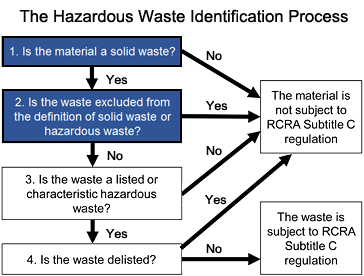What Does Reclaim Waste Mean?
Table of ContentsUnknown Facts About Reclaim WasteReclaim Waste Fundamentals ExplainedReclaim Waste Things To Know Before You BuyThe 5-Second Trick For Reclaim WasteThe smart Trick of Reclaim Waste That Nobody is Talking About
Check out the types, incidents, and types of liquid waste. Residential sewage waste describes the waste and items from a property septic system. This sort of waste is created by humans in houses, colleges, and other structures. This only includes septic storage tanks that have a drainpipe area. The appropriate management and disposal of residential sewage waste call for liquid waste to be transferred to a sewage therapy plant where the proper techniques and equipment are used to purify and dispose of waste.
Commercial waste often includes prospective hazards, such as flammable products or a mixture of liquid and strong waste items, and requires a much more innovative and in-depth disposal process. The disposal of business waste typically includes the purification of waste prior to transportation to ensure secure and proper disposal. Hazardous waste is created from results and drainage of industrial processes and production.
This type of waste can not make use of the same sewage administration transport or procedures as septic or business fluids. The commercial waste monitoring procedure requires the evaluation and testing of liquid waste prior to it goes through the disposal procedure (liquid waste removal melbourne). Overflow waste is the fluid waste that originates from overflow and excess stormwater in very booming locations or cities
Drainage waste can create contamination and flooding if not handled properly. Ensuring appropriate waste administration can avoid disasters and decrease ecological damage.
6 Easy Facts About Reclaim Waste Shown
Contact PROS Services today to learn concerning our waste administration and disposal solutions and the proper ways to take care of the fluid waste you create.
(https://gravatar.com/maximum5d830db060)Do you know what takes place to your water when you draw the plug, flush the toilet or drain pipes the washing maker? No? Well, it deserves understanding. This supposed 'wastewater' is not just a crucial resource however, after treatment, will certainly be released to our land, rivers or the ocean. Made use of water from bathrooms, showers, bathrooms, cooking area sinks, laundries and commercial processes is called wastewater.

water made use of to cool equipment or clean plant and tools). Stormwater, a form of wastewater, is drainage that flows from farming and urban areas such as roof coverings, parks, gardens, roadways, courses and rain gutters right into stormwater drains pipes, after rainfall. Stormwater flows without treatment directly to neighborhood creeks or rivers, at some point reaching the ocean.
Not known Facts About Reclaim Waste
In Queensland, many wastewater is treated at sewage therapy plants. Wastewater is transferred from domestic or industrial sites with a system of sewage systems and pump terminals, called sewage reticulation, to a sewer therapy plant. City governments construct, maintain and run most sewage treatment plants. Operators are licensed under the Environmental Defense Act 1994 to discharge treated wastewater at an appropriate ecological standard right into rivers.
The Division of Natural Resources advises regional governments about managing, operating and keeping sewage systems and therapy plants. In unsewered areas, city governments may require householders to install specific or house sewer treatment systems to treat residential wastewater from commodes, cooking areas, shower rooms and laundries. The Department of Natural Resources authorizes the usage of home systems when they are verified to be efficient.
In some brand-new class, treatment of some stormwater to eliminate litter, sand and crushed rock has begun using gross toxin traps. Wastewater treatment occurs in 4 phases: Eliminates solid matter.
Wastewater after that streams right into big containers where solids work out and are gotten rid of as sludge. Grease and scum are skimmed from the surface area. Uses little living organisms referred to as micro-organisms to damage down and eliminate remaining dissolved wastes and great particles. Micro-organisms and wastes are included in the sludge. Gets rid of nitrogen and phosphorus nutrients that could trigger algal blooms in our waterways and intimidate aquatic life.
7 Easy Facts About Reclaim Waste Explained
Nutrient removal is not available at all sewage treatment plants due to the fact that it calls for costly specialist equipment. Clear liquid effluent generated after therapy might still include disease-causing micro-organisms - liquid waste disposal.

This normally indicates wastewater has to be treated or contaminants removed before it can be discharged to waterways. Most wastewater moves into the sewerage system. Under the Act, city governments carry out approvals and licences for eco appropriate tasks (Ages) entailing wastewater launches that might have a local influence. The division administers approvals and permits to ERAs entailing wastewater launches that might have a local or statewide effect.
Reclaim Waste Things To Know Before You Get This
Tracking supplies valid details about water quality and can confirm that licence conditions are being met. The details obtained with tracking gives the basis for making water quality decisions.